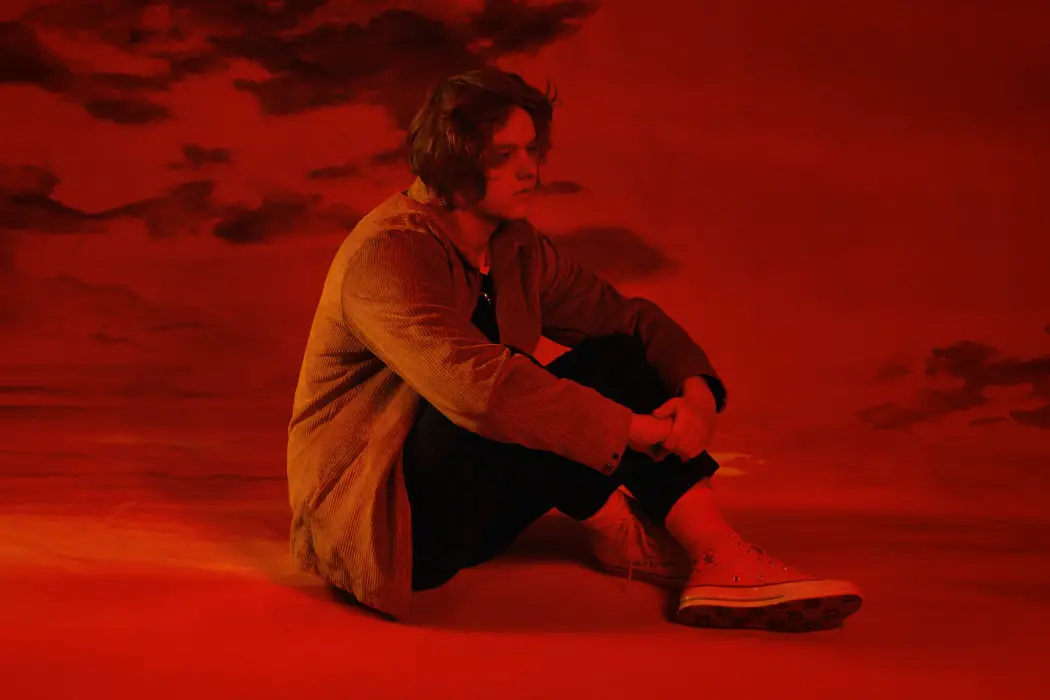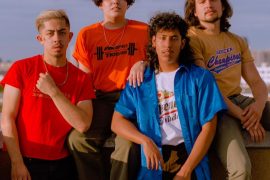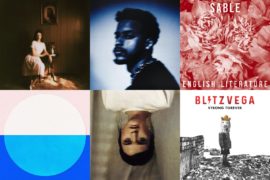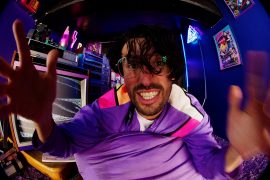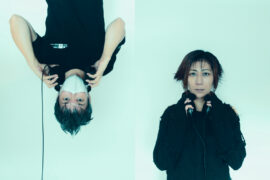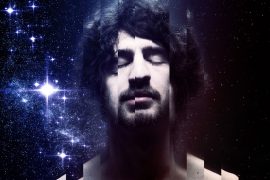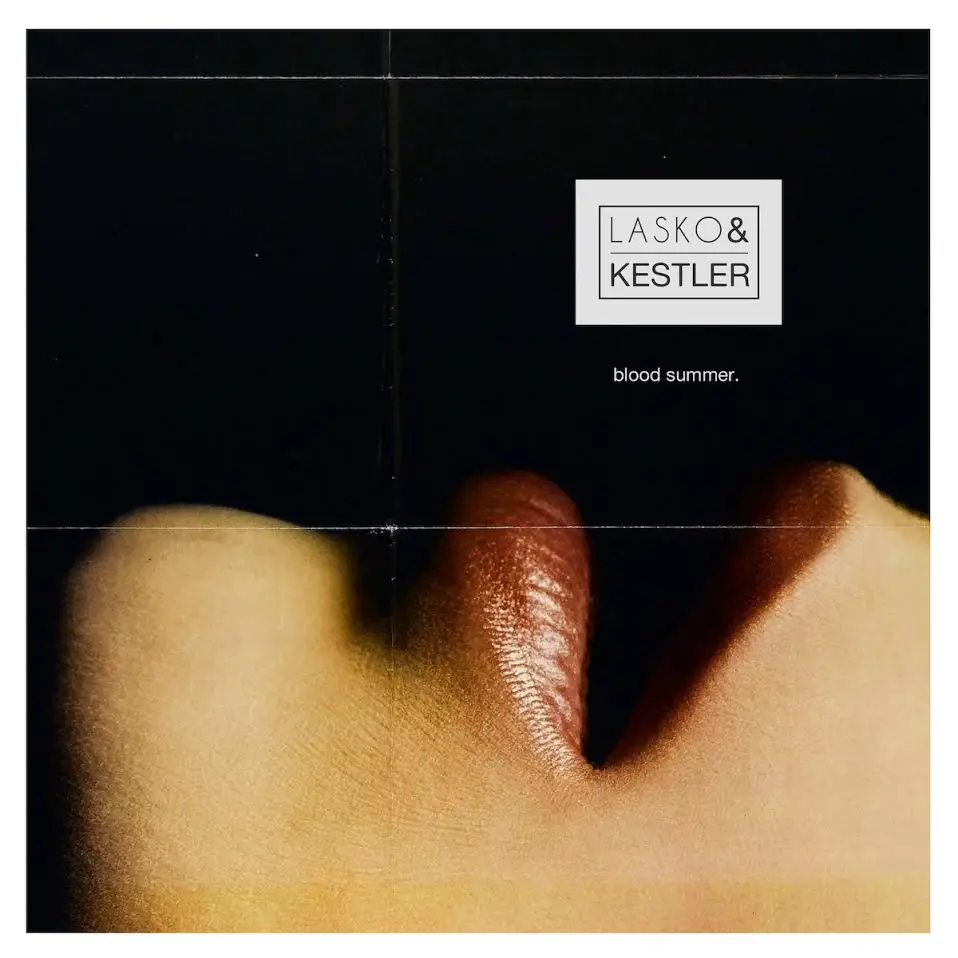Lewis Capaldi discusses his creative process, his love of performing, and much more ahead of his long-awaited debut album, ‘Divinely Uninspired to a Hellish Extent.’
— —
At this point, classifying Lewis Capaldi’s success as anything other than momentous would be an understatement of extraordinarily epic proportions. Over 800 million cumulative worldwide streams, becoming the first artist to sell out UK arenas prior to the release of a debut album and having his track “Someone You Loved” sit at the top of the UK single charts for seven straight weeks are just a few of his mind-boggling accomplishments to date.
It would be easy to just attribute this success to Capaldi’s hilarious Instagram exploits or the stupendous popularity of songs “Bruises” and “Someone You Loved”; with his debut album Divinely Uninspired to a Hellish Extent, Lewis Capaldi more than proves his monumental success is well-earned. On the album – out Friday, May 17, 2019 – the Scottish singer/songwriter’s unparalleled ability to encapsulate the rawness and all-consuming nature of human emotion shines. His melodies are earnest, and his intimate, accessible lyricism is intoxicating. Meanwhile, his assured vocal performances across the album beguile in a breathtakingly beautiful fashion, simultaneously encapsulating a plethora of intertwined emotions.

Divinely Uninspired to a Hellish Extent perfectly combines a pop sensibility with singer/songwriter stylings to form a collection of tracks that feel familiar, yet distinctly adventurous. While the songs are instantly memorable, even after multiple listens, they still retain an air of intriguing excitement and delightful delicacy. With previously unreleased songs “Maybe” and “Hollywood,” Lewis warmly embraces anthemic choruses that seem almost purposefully crafted for mass singalongs, ready for fans’ harmonious echoes to fill the cavernous sold-out venues he’ll soon be playing.
With songs “Forever” and “The One,” Lewis Capaldi strips back his sound to fully showcase his astoundingly affecting lyricism – one that’s tainted with agonizing heartache and excruciating longing. Joining those tracks are a raft of previously released songs such as the delightfully buoyant “Grace,” the stirringly touching “Lost on You,” and the bittersweet anthem “Fade.”
“Someone You Loved” – Lewis Capaldi
While other artists with millions of streams can sometimes struggle to fill rooms, the demand to see Lewis Capaldi performing is feverish. His goosebump-inducing voice and astonishing musical moments make sure that fans are always dying to come back for more. There’s something surprisingly unifying about being in a room with thousands of strangers and losing yourself, just to fully embrace yourself in the palpable, anguished emotion embodied in Capaldi’s music and lyrics. At the same time, the more sanguine-sounding songs in his setlist remind one of the euphoric elation and life-affirming hope that can be found even in moments of hollow emotional emptiness.
With Divinely Uninspired to a Hellish Extent, man of the minute Lewis Capaldi has managed to craft an awe-inspiringly alluring album that will leave a lasting impact on generations to come.
Each track on the album manages to feel remarkably sonically cohesive while still retaining its own respective sonic identity and stirring lyrical sentiment. Atwood Magazine caught up with Lewis Capaldi prior to the release of his debut album to chat about the rationale behind its ludicrous title, his creative process, and more!
I… thought it would be quite funny to watch the label try and market an album with such a negative title. So far, they seem to be doing an okay job, so God bless them!
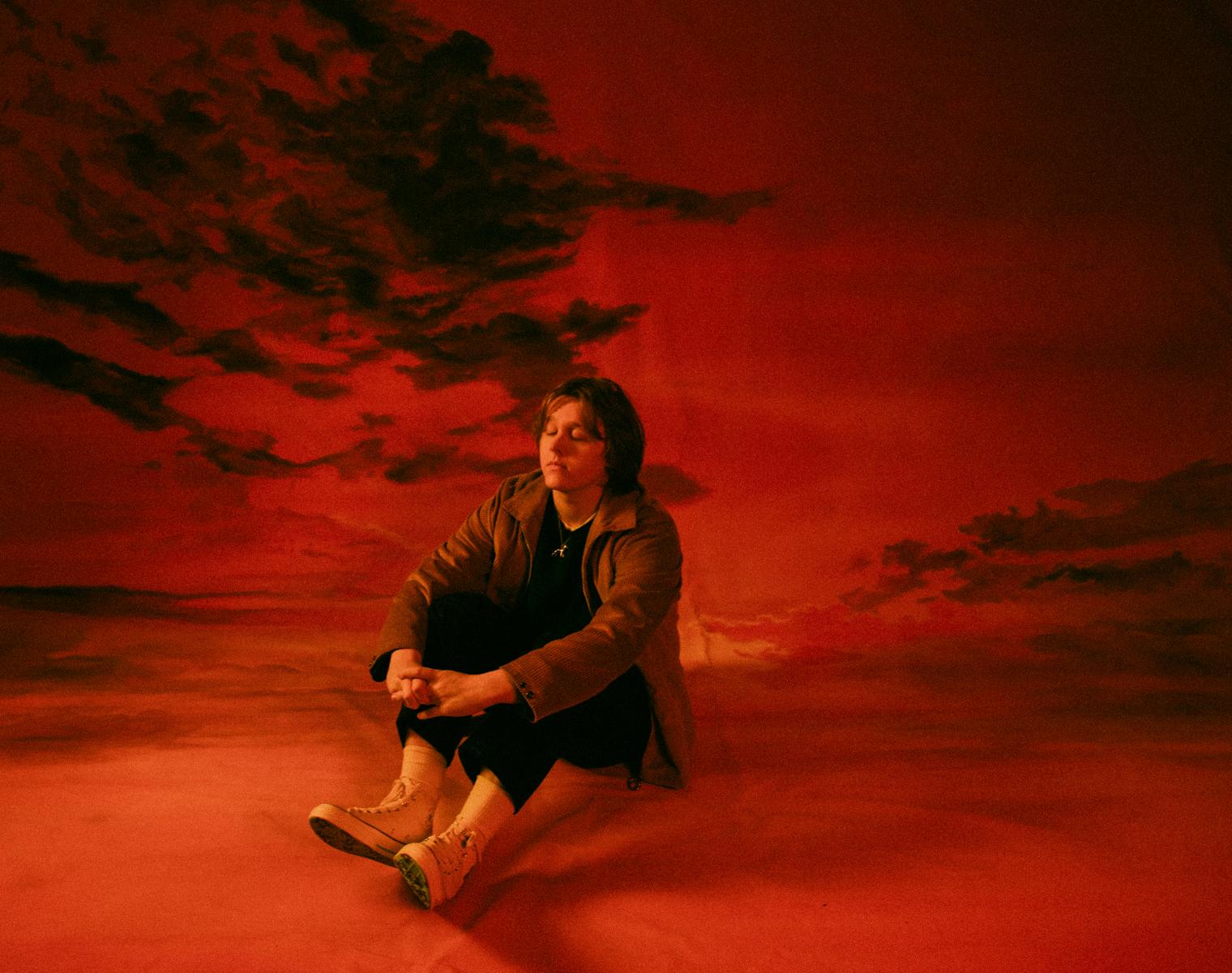
CATCHING UP WITH LEWIS CAPALDI
Atwood Magazine: Congrats on the album, it’s incredible. How does it feel to finally have the album done and ready?
Lewis Capaldi: Thank you! It’s the biggest fucking relief I’ve ever experienced in my life. Making it was fun, like writing it and stuff, but it got pretty laborious towards the end. But yeah, I’m so excited that’s done.
There’s quite a lot of variety on the album. Was it difficult choosing which songs made the album? How did you decide?
Capaldi: I suppose so, yeah, I what I was most worried about was putting too many songs that people had heard before. I wanted there to be a lot of new stuff on there because I think what’s exciting about music now, and the way we consume music, is that everything’s just online. With like Spotify and Apple Music, you can access stuff very easily — whereas before, the EPs and stuff would have become a bit less accessible once the album had come out.
I wanted to keep it mainly focused on new stuff, but it was a bit of a task picking which songs to go on. I just thought I wanted to keep it mostly new and I wanted people to hear as much variety as possible. I’d written about 400 piano ballads for this album, so there was a conscious effort not to just stick them on — but yeah, I’m pleased with the variety on the album!
Your debut single “Bruises” was insanely successful. Do you feel there was any pressure to emulate the style of that track or try and maintain that level of success with the album?
Capaldi: There always is, I don’t think its pressure but it’s like, if that’s worked once, why would it not work again? The second single we did put out was another piano ballad and I think if you do it too much, people are going to be like, “Right, we’ve seen this now.” People would just get sick of hearing the same thing from me, even though there’s that pressure where you see how well it did and you think, maybe if we just did that again… Especially when you’re releasing new songs with bigger production and they maybe don’t do as well, you’re like, “Maybe if we just do that again, we’ll be alright.“
I think there’s that self-imposed, I wouldn’t say pressure, but it’s more like, “Is that what people want from me?” Just the piano ballads, or do they want a bit of change and stuff like that? I think, for the most part, from what I’ve seen when I play live and what we see when we’re releasing new music, people do want that variety. I think those moments where it’s just like the piano and vocal aren’t as effective, on the album or in a live set, when you don’t have the bigger moments in there. Otherwise, it would just be like the most bland, boring album you’ve ever heard in your life.
I absolutely adore “Hollywood.” What was the story behind that track? I saw that Plested helped co-write it; he’s incredible.
Capaldi: That song is actually one of my favourites on the album and I think it’s been one of the favourites from the live set too; people really seem to enjoy it. That session came about when I texted my pal, an artist called JC Stewart, as I had just come from a session. I was like, “I wanna do something else, I still want to write more today.” I’d been in a session from 11 AM to like 7 PM and I texted him at 8 being like, “Do you want to get in a studio and try and do some writing?” And he was like yeah sure, I’ll ask my pals Plested and KIN — whom I think is another amazing writer and producer.
And then that session was just very relaxed… It was the first time I’d met KIN and Plested, and it was just like getting to know them as like new pals sort of thing, while also writing a song. That song kind of came about because it was my first experience of being in LA, which was like a year and a half ago maybe, and I was there for about a month and I was just writing. I was doing lots of writing and some stuff with labels and stuff like that and it was class, I fucking loved it. I do love coming to LA all the time, even now, but I found there was something about it where coming over there really encapsulated how mental things had got, I think. Just that I was in LA and six months before that I was like, you know, sitting in my house playing PlayStation in my pants.
It was very strange that I was coming over there and working doing music, but there was something about it that was like — I had just broken up with a girl maybe like 8 months prior, and I [felt] this would all be better if I could share that with her. I just felt like I kind of related that girl to being in that simpler time, sort of thing. When I was just kicking about my hometown, like with my pals and stuff like that.
I’m loving doing all of this, but I think sometimes you just want that kind of vibe of just a very chill, easy day. This was the first time I was doing anything serious. I was like, Ohh, this is all happening at quite a fast pace, do you know what I mean? Then there was maybe like one or two days when I was like, Ohhh this is so amazing, but it would be class if I could just be in the pub with my pals and my ex-girlfriend. You want to share it with people, you want to share experiences with the people that you love.
You want to share it with people, you want to share experiences with the people that you love.
Your tour dates sell out almost instantly, how do you describe that feeling of waking up and seeing thousands upon thousands of tickets gone?
Capaldi: Yeah, it’s so weird. It doesn’t feel like thousands of people have booked tickets because it’s all online, and it probably won’t feel like that until I’m standing onstage in front of thousands of people and I’ll go, “Oh my god, this sold out in seconds.” Do you know what I mean? That’s what’ll make it feel real but yeah, that’s a weird one just because playing live for me is the utmost thing and the whole point of doing this. The reason I write songs is to play them live. The reason I record is to play live. The reason I do like any promo is so I can play live. I think, for me, the live part of it is the most fun and the whole reason I got into it.
I’ve really really enjoyed seeing how the live aspect has picked up and progressed over the last little bit. The last tour we put on sale, which we did at like Shepherd’s Bush and Barrowlands and stuff like that, that sold out but the only shows that sold out as quick as all the ones we’re doing this year were the two Barrowland shows because they were in Glasgow. The live shows have always like got there, they’ve never like sold out instantly but we put these shows on sale and we were like hopefully they ’ll sale incrementally and hopefully, they’ll get there, and they’ll be relatively full.
Just to see how quickly they went was just mental. That’s the weird thing about it, when you put tickets on sale, you kind of think everyone that wants to come and see me has seen me on the last tour and now no one will buy tickets. It’s a good gauge of how far you’ve kind of come since putting those last shows on sale, like how far things have progressed.
It’s fucking mind-blowing to see that many people buy tickets. To be told numbers as well and you go “Right, that first Scarborough show sold out, that’s like 7000 tickets in seconds” and we’re going to put on another one and I’m like “Woah Woah Just fucking chill out. Fuck me, we’ve got the one here, there’s no need to put on another one.” Then they’re like honestly, it’ll be fine like that one is going to sell out as well and it’s just like mental. For me, not to sound cliché or whatever, but that’s like really heart-warming and I think live music is one of the few avenues of music that’s like still tangible. People have to part with that money. People have to pay. Even with all the streaming and how people now consume music, one thing that’s remained constant is the tickets and people paying to come and see shows.
I’m quite proud and honoured that people will part with their money to come and see a chubby guy from Scotland shout down a microphone for an hour and a half.
As a performer, how does different does it feel performing, with just Aiden (keyboardist), compared to with a full band?
Capaldi: It’s better with the band. Having the band allows those moments in the set where it’s just the piano and the vocal to be really special. So when we do “Bruises” and “Someone You Loved,” those are moments where you’re like fucking hell because the set has a bit more of a dynamic and a groove, in the sense that it’s up and down. It makes the bigger songs sound fucking amazing and makes people really enjoy it a lot more and it makes the quieter and more intimate sections feel just that. It’s a different kettle of fish.
We just did five nights supporting a band called Picture This and it was fucking brilliant. Those five nights were the best shows we’ve ever played. It was just incredible, I love playing with the band and I’m really chuffed for the foreseeable. Unless things start to go tits-up and we need to cut back on some costs.

What’s your typical songwriting like? Did it vary across the album, in tandem with the different song styles and structures?
Capaldi: I have this theory that the best songs aren’t the ones that come to you immediately. I know everyone says that they do, but I think the best songs for me are the ones where you’ve sat at a keyboard for a bit bashing your head against the wall for six hours just to get just one melody.
For me, all my best songs have always taken a little bit longer to make. So “Bruises” was an amalgamation that I already had, and I was working on and this guy James Earp has this idea for a verse and pre-chorus and it just gelled. We’d both been sitting on that for like a long time just working through it. Yeah, I think the songs, from experience, that have been my favourite songs of mine, take a bit longer to come together.
For me, this experience was all about learning how to be patient in terms of songwriting, rather than just being like oh right, that melody isn’t grabbing my attention immediately, let’s fucking get rid of it. There’s something to be said for going okay, there is something in this so let’s keep pushing through this and try and craft something out of this rather than just getting rid of it. Because I think that’s the thing as well, I found doing sessions with other people and that you start an idea and then everyone’s really excited about it and then you get like half an hour into the session and new ideas are coming along and people are like “Okay, that’s that. Let’s move on to another idea” and you’re like no c’mon there’s a reason that we were all so fucking into this.
There’s a reason why this caught our attention and we’re caught on it. So it just takes a bit longer sometimes, but I do understand why it’s like that sometimes because you’ve only got a finite amount of time. That’s why I think I always start stuff by myself even if I know a co-writer is coming in because I think it’s easy to spend time with something a bit longer than the usual. Yeah, so I think, for me, this process was about learning how to be a bit more patient with things when it comes to songwriting.
I think the best songs for me are the ones where you’ve sat at a keyboard for a bit bashing your head against the wall for six hours just to get just one melody.
So many of your songs deeply resonate with so many different people, who all find their own meanings in them. Do you ever find it surreal to think about the deep connection that your music has worldwide?
Capaldi: Yeah, I think it’s absolutely wild. You put out these songs and you never expect people to find something on it. When I started this, and even now, I’m writing it all for me. I’m not writing thinking what do people want to hear. I’m writing songs that I want to listen to and like. It’s weird when people come up to me and go Oh my god, I related to the song in this way and it’s helped me through this.
Genuinely, it’s probably the fucking nicest feeling in the world. Someone from fucking, I don’t know, Santa Monica in California telling me the song that I wrote about a girl from fucking Faulshouse in West Lothian in Scotland relates them is mental. It’s such a nice thing to find that people all over the world all relate in a certain way. Like everyone’s had shite boyfriends and girlfriends. I think it’s quite nice that people relate to these songs that I write about my own life and they can find something in them.
Honestly, it means the world to me when people come up to me say that. I feel like I’m being a bit insincere about it and I go, “Oh, thank you so much,” but it’s such a big thing to say to someone and I don’t think many people realise like however much it means to them, it means so much more to hear that back from someone. Especially when you never set out to do that it’s genuinely lovely.
It didn’t make the album but previously you’ve said ‘Mercy’ the only song on the first EP you didn’t draw from personal experience to write. On the album, did most of the tracks originate from personal experience?
Capaldi: Yeah, totally. It was all from personal experiences. People often ask me; do you feel a bit awkward writing, but I don’t feel like I’m being very personal. I’m just writing about what I’m thinking, and I guess that is personal to me, but I don’t feel like I’m exposing too much.
They’re all from personal experiences, I think you’ve got to. When I was like 11 years old, I was trying to write songs about things that had no effect on me, and I didn’t know about. I used to write songs about nothing, or I used to write songs that I thought sounded like someone would put in a song.
Maybe “Bruises” was the first ever song that changed things, in fact, maybe a song called Headspace that’s on the album, that I wrote when I was like 17. Those are the first songs where I really really wrote about what I was thinking and what was happening in my life and those are songs that people seem to gravitate towards.
As soon as you start writing about you, things that have actually happened to you and are real to you, people can see that and that’s when people seem to enjoy it.

Finally where did the album title, Divinely Uninspired to A Hellish Extent, come from?
Capaldi: That’s actually a line from a song that was supposed to be on the album but never made it because it wasn’t ready in time, which is a bit of a pain in the arse. It kind of encapsulates how I felt about the whole process of making an album. There were times during making it when I was just getting too caught up in the industry side of things. They’re like, “Ohh the tickets here aren’t selling very well and this isn’t doing this,” or whatever, but then the next day it’s like, “Ohh, but everything’s amazing.” It’s a very up-and-down sort of industry.
I was just getting caught up in that side of things. I wrote that song, it’s called “Figure It Out,” and the opening line of that song goes, “Broken by desire to be heavenly sent, divinely uninspired to a hellish extent.” I was just saying whenever you try to do something that you want to be good at or that you’re putting effort into or you just want to achieve a goal, 70% of the time you’re going to feel like you’re failing or that you’re not going to achieve it or that you’re fucking it up to some degree.
But that’s totally normal. What’s amazing about it is when you get through that and you look back and go, “I’m very glad that I went through all of that and got to this point.” At points during making this album, I did feel divinely uninspired to a hellish extent just because I wanted it to be really good. Like I wanted to do well with it. I didn’t want to fuck it up and yeah, I hope I haven’t. Also, when I got to the end, I found it quite funny to look back on that process.
I mean, the title is fucking ridiculous and I think it’s quite funny because of that, but I also thought it would be quite funny to watch the label try and market an album with such a negative title. So far, they seem to be doing an okay job, so God bless them! I don’t know man, I just wanted something that was very unique to me and something that no one else would have. Like no one else is going to have that album title and if they do, I’ll fucking sue them.
— — — —
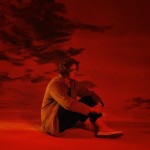
Connect to Lewis Capaldi on
Facebook, Twitter, Instagram
Discover new music on Atwood Magazine
? © Alexandra Gavillet

